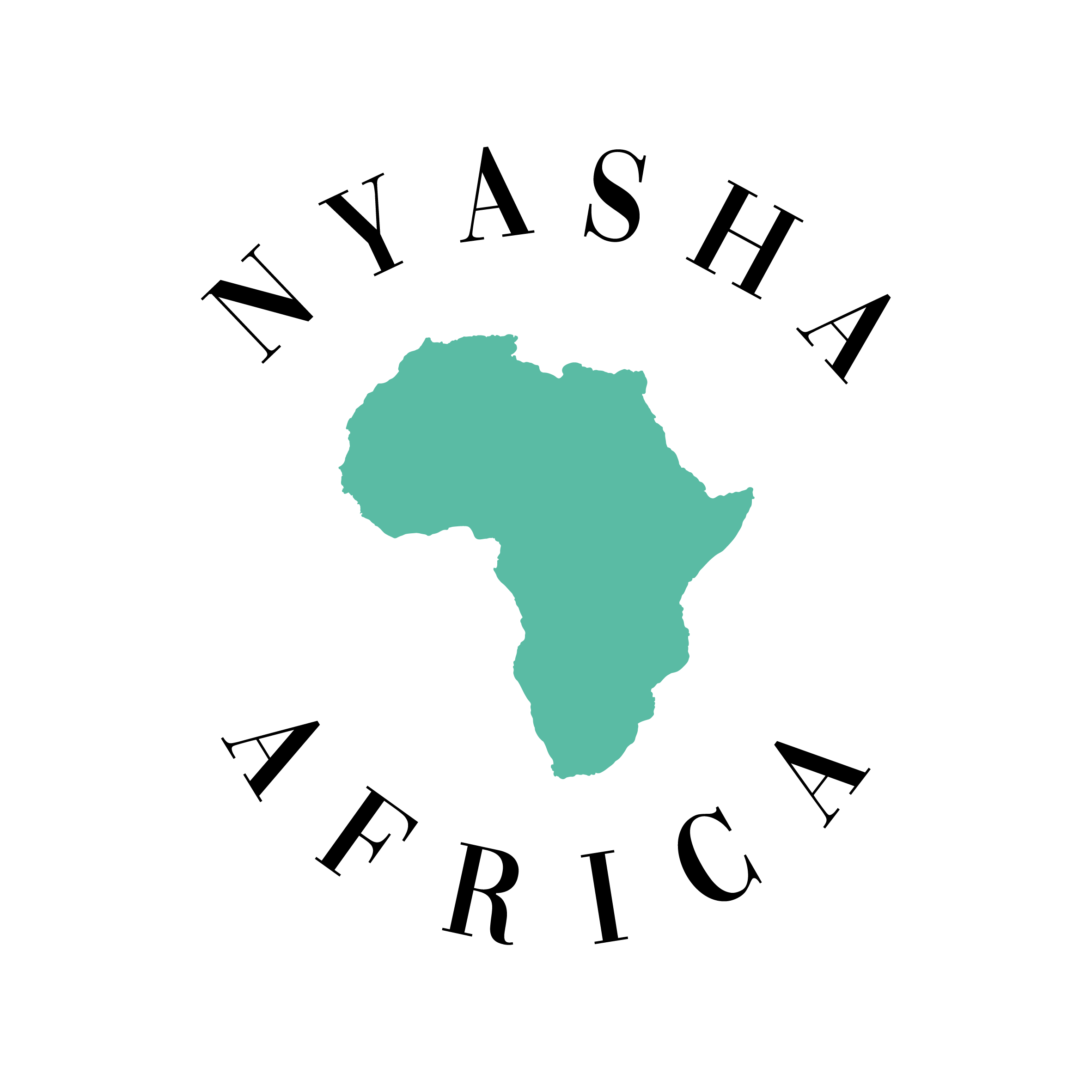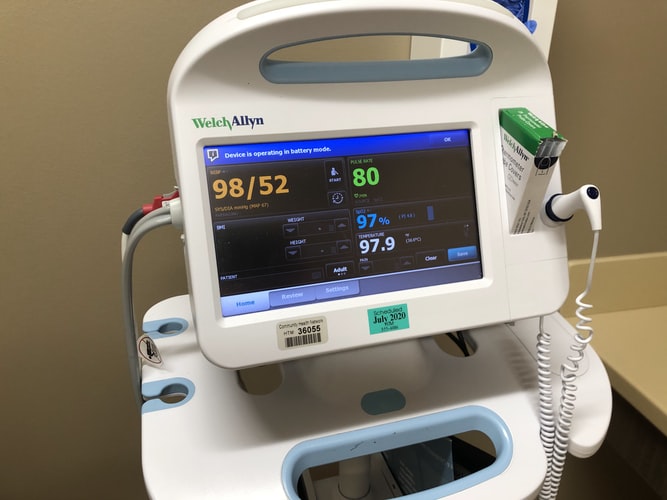What is the solution to Healthcare Challenges in Africa? Is it to donate medical supplies? Will it improve the African healthcare system? When you visit the busy markets found in almost every African city, often there are tons of donated clothes displayed on the secondary market there. It is a highly controversial trade that clothes which are donated to charity in the West end up for sale not donated to poor people, but whether you agree with it or not, secondhand clothing has driven down the cost of clothes in Africa and lowered expenses for families trying to clothe their children. Besides clothes, Africa has more serious needs including healthcare and education. Last year my friend’s teenage son asked me if I had an old phone to give him because he needed a phone. Unfortunately, I did not because any spare smartphone that anyone has in Africa quickly finds a taker. Now I am living in the US where new versions of smartphones come out every year and most people don’t keep their phones longer than 2 years, phones are like a fashion item. Mobile phone companies accept old phones as a trade-ins but they end up with tons of e-waste. Imagine if we set up a program to get these phones into the hands of students and disadvantaged people in Africa? Students can have access to virtual education through smartphones if they have no other devices.
An overview of the African Healthcare Problem
The Covid pandemic has made virtual education the safest option for students and teachers sheltering at home during lockdown but the problem is, even if internet access is available, most people living in townships and rural areas in Africa do not have laptops or tablets to get online. The availability of devices is a gamechanger in education now and it can make the difference between Africa catching up with the rest of the world in education or falling behind in learning. Most organizations in the US like The World Bank Group are still working from home but some US companies like Microsoft and Twitter have realized the savings they make not renting office space while working virtually so they have decided that their employees can work from home indefinitely. Other organizations are moving away from the centers of large cities like New York and they are simply donating their equipment in order to start afresh in their new location. They are disposing of the top of the line tech equipment which is still in perfect condition. Such equipment would be invaluable to a school or hospital in Africa. Then there are opportunities with device manufacturers and retailers who cannot possibly sell all their inventory and have returned equipment that cannot be sold. Imagine if those laptops or tablets are given to nurses in Africa together with blood pressure monitors and glucometers to function as mobile clinics for the screening, prevention and treatment of patients in villages and townships in Africa? Or even give African students the same e-learning experiences as students in the West?
Opportunities for health Promotion in Africa: Donate unused medical supplies
The biggest opportunity in donated surplus equipment lies in the medical field. Donated surplus medical equipment is a growing trade such that the United Nations issued guidelines for the standards of equipment to be given to developing countries. There are even 2 accreditation bodies for the growing number of organizations dealing in donated medical equipment, Partnership for Quality Medical Donations (PQMD) and Medsurplus Alliance. To view the list of organizations that donate surplus medical equipment, click here.
I have recently set up a non-profit organization in Washington, DC Nyasha Africa, to support healthcare and education in Africa so I reached out to Medshare, which is also on this list, to find out how their donation process works. Our non-profit, Nyasha Africa, is working with doctors in Africa who will select the medical equipment needed, Medshare will fill up a container and ship it to a port in Africa, at the cost of $25,000 and if we do not return the container, we pay an extra $2,500 for the actual container. I set up a GoFundMe campaign, gf.me/u/y327s8, to try to raise money to send medical equipment to Zimbabwe so Beira would be the nearest port of shipping then we still need to raise more money to get the container from Beira to Harare Emergency Services, which would be the central distribution point. This is a trial of the concept for us because overall it will cost $27,500 to land the container in Beira then more money to get it to Harare. Normally you can send a container to Beira for about $10,000 so Medshare is adding their own $15,000 in admin costs to the shipping costs for the donated equipment. Once our nonprofit is registered with the IRS we can solicit our own tax-free donations of surplus medical equipment from manufacturers, wholesalers, hospitals and clinics. I am a trained pharmacist so I know how much consumables and small equipment is returned to wholesalers. Now with Covid, there are stringent restrictions on returning goods, even certain goods on Amazon. I tried to return disposable gloves which were too big in Amazon but they said there is no need and still gave me a refund.
Case studies of Donate Medical Supplies to Zimbabwe
As a case in point a friend of mine, Kerry Grier works in the maternity unit in a major hospital in Toronto. Hospital policy says that any supplies brought into the neonatal ICU where the premature babies are kept on ventilators cannot be returned back into their storage so they have to be thrown away, even if they are unopened. Kerry asked her colleagues to keep the unopened supplies, instead of throwing them away, and pretty soon she was known all over the hospital for collecting supplies which she shipped to hospitals in Zimbabwe. One day the head of the neonatal unit said that they were replacing the ventilators so did she want the old ones? Of course, she said yes and so began a long journey of legal approvals, fundraising for storage, and shipping the ventilators until they finally got to Zimbabwe and were installed in a hospital in Bulawayo. It was not an easy process at all and I spoke to Kerry to see what learnings I could get from her.
There are some Zimbabweans in the Diaspora who care what happens back home. On the other hand, there are a lot of Africans who are successful and comfortable in their new adopted countries that do not care what happens in Africa. I care because I still have friends and family there, and when I visit I want to be assured that there is good medical care if I need it. Someone called me to ask me why I did not consult them before I set up a “Donate Medical Supplies” GoFundMe for Zimbabwe and my answer was that if I wait for everyone’s approval, I will never get anything done. So far not a single Zimbabwean has donated yet but they have families back home where some hospitals do not even have beds for patients to sleep on. A couple of Nigerians have donated because Nigerians have a stronger sense of community. I get it, we are in a pandemic and there are a lot of people going through hardships with a corresponding increase in the number of requests but a lot of people like to talk and complain about the situation in Africa but will not step up when asked to help. There is so much need that even with a few hundred dollars you can buy masks and PPE to donate to doctors, which is what I plan to do this December with what we raise by then. It is not all doom and gloom, however. There are so many separate initiatives for health and education by the African Diaspora; we just need to come together and support each other. For the Nyasha Africa board, Dr. Taku Tela, a chiropractor based in Maryland and Ruth Kanodereka, a traveling nurse currently fighting Covid in Texas, have joined so we are pooling our resources to see how we can have impact in Africa. After a long career in international finance, I have decided to venture into the nonprofit world to use my skills and experience to make a difference.
The United Nations set out a call to action in their Sustainable Development Goals (SDG) for all countries and Nyasha Africa answers at least the third and fourth SDGs, which are health and education, through goal 17, partnerships with corporations and other organizations. I was so excited to discover that USAID has programs for donating equipment and reimbursing some of the shipping so I am taking a deep dive to see how we can participate in these programs because they would bring scale to our operations. Partnerships are more important than money especially partnerships with implementers of health and education programs on the ground in Africa. Africans should come up with their own ideas to lessen the burden on foreign donors and development agencies. Most development aid fails to make an impact because it is imposed on Africa. Donating surplus equipment is a win-win for everybody because organizations in the West have a sustainable way to get rid of their surplus while Africa has a means of getting hold of equipment that would normally be expensive.
For more information about what Nyasha Africa is doing, visit our About Us here


Recent Comments